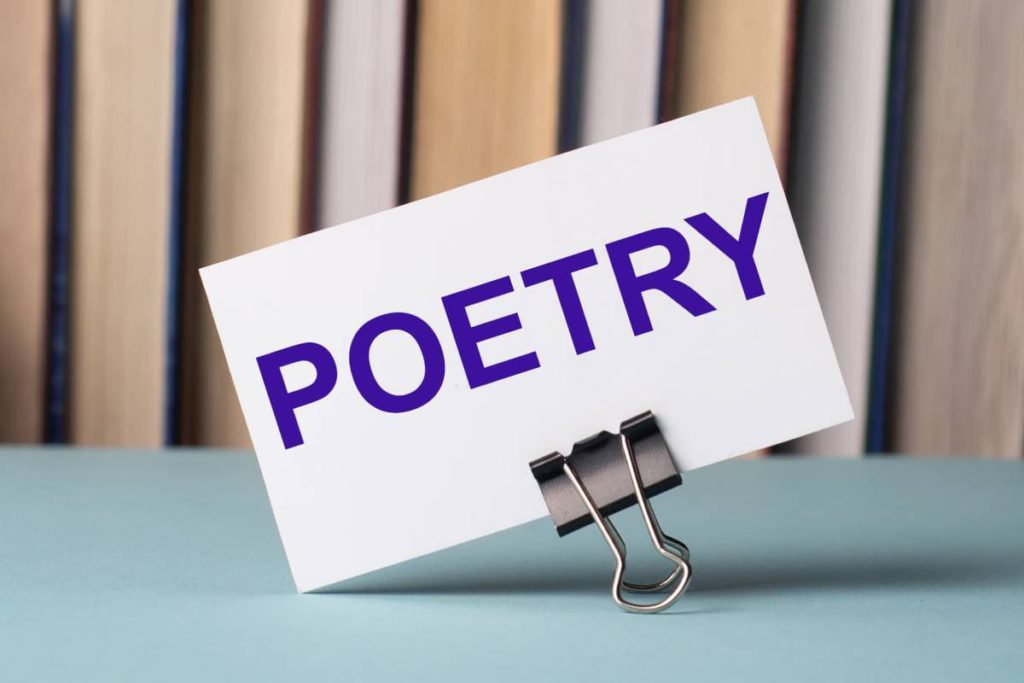If you’ve just started writing poetry, you’re probably still getting to grips with the technicalities. You might also wonder if you can write poetry in the first-person view.
You can write poetry in the first-person view. It’s the most effective way to make the reader feel close to you and understand your deepest thoughts and feelings. It also builds intrigue and allows you to express your opinions.
This article will explain the first-person view and what kind of poetry you can write in the first person.

What Is the First-Person View?
Before explaining what kind of poetry you can write in the first person, I need to explain first-person poetry briefly.
The first-person view is written from the author or poet’s perspective, using personal pronouns, such as “I,” “me,” and “myself.” First-person poetry can also use the collective pronouns “we” or “us.”
Poetry that is written in the second person view uses the “you” pronoun, while the third-person perspective is written from someone else’s perspective using pronouns, like “he” or “she.”
What Kind of Poetry Can You Write in the First Person?
Now that I’ve explained the concept of first-person poetry, what kind of poetry can you write in the first person?
You can write any kind of poetry in the first person, including free verse, sonnets, or rhymed poetry. Most poetry is written in the first person, giving the reader a first-hand glimpse into the poet’s life and experiences.
Famous examples of poetry written in the first person perspective include the following:
- “I’m Nobody! Who are you?” by Emily Dickinson. This well-known poem describes the poet’s positive experience of being a non-noteworthy person and how being famous could be demanding as you’re always in the public eye.
- “Stopping by Woods on a Snowy Evening” by Robert Frost. In this first-person written poem, Frost tells the reader how he was once poor and couldn’t afford food for his family. However, he decided to choose life instead of escaping into the woods.
- “Fern Hill” by Dylan Thomas. “Fern Hill” is another brilliant first-person narrative poem describing Thomas’s memorable childhood experiences at his aunt’s farm, Fern Hill. Reflecting on these times, he explains how innocent and happy he was as a child.
What Are the Benefits of Writing Poetry in the First Person?
If you’re considering creating poetry in the first person, what are the benefits of using this perspective?
The benefits of writing poetry in the first person allow the reader to feel close to you. It also builds intrigue. Writing poetry in the first person also allows you to express your opinion and feelings to a captive audience.

I’ll discuss these points in more detail below.
Allowing the Reader To Feel Close to You
When you write poetry from a first-person perspective, you express your subjective thoughts and the way you see the world. It’s an effective way of allowing the reader to see the world through your eyes.
As you describe how you feel, what you see, and how you experience situations, the reader feels close to you and begins to understand your thoughts and emotions.
You can give the reader an intimate glimpse into various aspects of your consciousness, including:
- How a certain kind of food tastes.
- How beautiful you find the landscape.
- How a specific smell reminds you of someone or something.
- The emotions (happiness, anger, love, etc.) you experience.
After experiencing an aspect of your personal existence, the reader may sympathize with you and feel encouraged to read more of your poetry.
Building Intrigue
When reading poetry from a first-person perspective, the intimacy you create makes the reader feel invested in your story, builds intrigue and excitement, and encourages them to read more verses.
Writing from your personal perspective also adds credibility to your writing because you are recounting thoughts and feelings straight from the heart.
Allows Yourself To Express an Opinion
Whether they’re professional or amateur poets, many people enjoy writing poetry because it allows them to express their opinions on various subjects.
It shouldn’t matter if your opinion is popular, shocking, or not well-received because your poetry is your personal narration. Anyone who reads your poetry will need to accept that it’s your opinion, even if they disagree.
When You Should Write in the Second or Third Person View
I explained that most poetry is written from a first-person perspective in the previous section. So, when should you write it from another perspective?
You should write in the second or third person view if you want to:
- Describe something from another person’s perspective.
- Address someone directly.
- Create distance or a balance between intimacy and distance.
- Describe multiple people.
Some of the benefits of writing in the second person view include:
- Allows you to address someone directly. A second-person perspective poem is an excellent idea if you’re writing romantic verses and want to tell someone how much you love them. It also allows you to address someone directly, such as when you’re writing a poem asking someone why they behaved in a certain way.
- It creates distance. The first-person perspective is very intimate, but the second view focuses on someone else, taking the spotlight away from you and your feelings.
- Includes the reader in the poem. If you’d like to address the reader in your poem, using the second person perspective draws them in and makes them feel included.
Here are some advantages of writing third-person perspective poetry:
- Allows you to describe multiple points of view. First or second-person poetry usually focusses on one point of view but using the third person will enable you to describe as many people as you like.
- It lets you describe an experience from someone else’s perspective. As a poet, you might empathize with someone and feel compelled to describe their experience. Using the third person lets you do this.
- You can strike a balance between intimacy and distance. When you use the third person can create distance, describe highly intimate feelings, or strike a balance between the two.
Conclusion
Writing poetry in the first person is the most common perspective because it lets the reader have a glimpse into your innermost thoughts and feelings. It can also build intrigue and allow you to express your opinions.
You might write poetry in the second or third person if you want to address someone, create distance, or describe something from someone else’s perspective.

